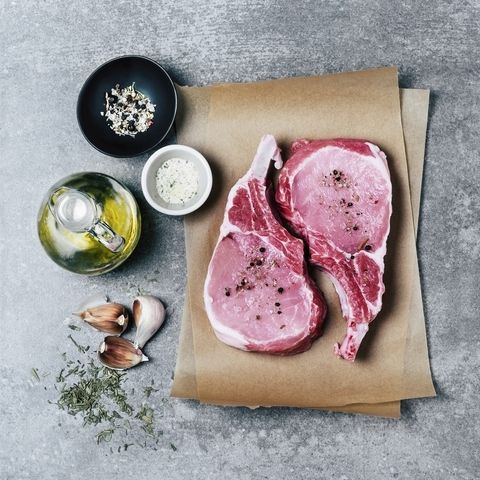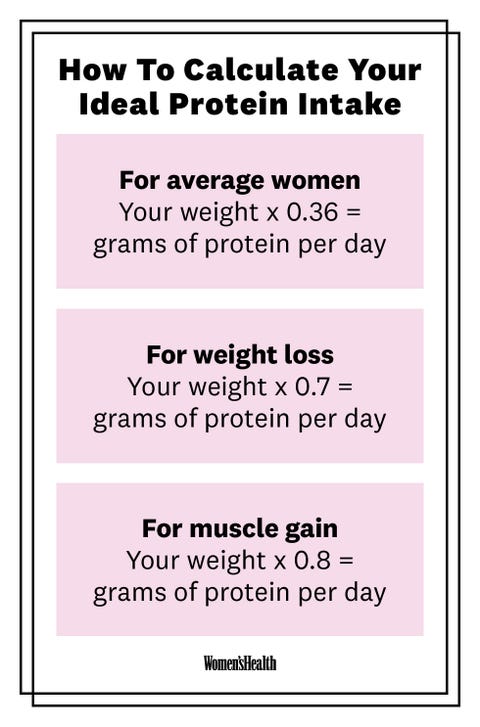
Unless you’ve been living under a rock without internet for the last five years…you probs know by now that protein is really, really important for your bod. It’s essential for building and preserving muscle—super important for your overall health, even if you’re not trying to get swole—and can help with weight loss.
But dive deep into paleo forums on Reddit (or do any research on a vegan diet), and things about protein get wayyy more complicated. There are all kinds of confusing new things to worry about, including something apparently important called complete proteins. But…what does that mean, exactly?
A protein is a “complete” protein if it has all nine essential amino acids.
The short version: “A complete protein contains all of the amino acids we have to consume or cannot create on our own,” explains Erik Bustillo, R.D.
In case it’s been a while since ninth grade bio: Proteins are made up of a combo of “building blocks” called amino acids. There are 20 total different amino acids, and your body needs all of them to repair tissue, grow new tissue, break down food, and basically to be in tip-top form.
Of these 20, nine are called “essential” amino acids, meaning your bod can’t make them on its own, according to the National Institutes of Health (NIH). And if you can’t make them on your own, you need to eat them. They are:
The remaining 11 (called “nonessential” and “conditional” amino acids) are produced by your bod on its own, so a healthy person doesn’t have to worry about getting them from food.
A complete protein basically has all nine of those essential, can’t-live-without-them amino acids in it—and in one fell swoop, helps you ensure that your bod is getting all of the protein-related nutrients that it needs to function properly.
All animal proteins—meat, fish, dairy, and eggs—are complete proteins, says Bustillo. “Soy protein is also considered a complete protein.”
If you’re a meat eater or a pescatarian (fish, but no meat), you’re definitely getting all nine essential amino acids, because you eat plenty of complete protein. Even lacto-ovo vegetarians, who don’t eat meat or fish, but do eat eggs and dairy, can get enough complete protein from these sources.
Sorry, vegans, but plant-based proteins generally aren’t considered “complete.”
Options like beans, grains, nuts, and seeds have some but not all of those nine essential amino acids, says Bustillo. One of the few exceptions to this is soy. That’s why plant proteins are called “incomplete.”
Good news: If you’re on a plant-based diet, you’re NOT totally screwed in the protein department.
…You just need to be a bit more strategic with your protein sources to make sure you’re getting all of the important nutrients you need.
Basically, if you’re on a plant-based diet, you should be pairing together two different types of incomplete proteins to get all of those essential amino acids. This is called making a complementary protein.
Obviously, it’s really hard to know what kinds of food have what amino acids. Keep this rule of thumb in mind, says Bustillo: Pair a legume (like beans, peas, lentils, or peanuts) with a grain, nut, or seed to make a complete protein.
Some of Bustillo’s fav combos include:
You should be eating complete proteins in some form every single day.

Amanda Becker
The amount of protein intake per day varies by person and depends on factors like your weight and your fitness goals. In general, a 140-pound woman should be eating about 50 grams of protein every day.
But regardless of how much protein you’re supposed to be eating, you need to be making sure you’re getting it from complete sources—whether it’s animal protein or complementary plant-based proteins. “Ideally, we’d get [all nine essential amino acids] in the same meal to have a more synergistic effect,” says Bustillo.
If you’re struggling with that on a vegan diet, good news: According to the National Institute of Health, it’s not absolutely necessary to pair complementary proteins together in a single meal. However, you should still be eating those complementary proteins over the course of the day. Getting all of your protein from a single plant source just won’t cut it. Bustillo recommends supplementing with a complete protein powder as well as getting smart about your protein pairings.
The bottom line: Animal proteins are complete proteins, but most plant proteins are not. So make sure you’re getting protein from a wide variety of sources so that you’re giving your bod (and muscles!) the best fuel possible.
Source: Read Full Article
